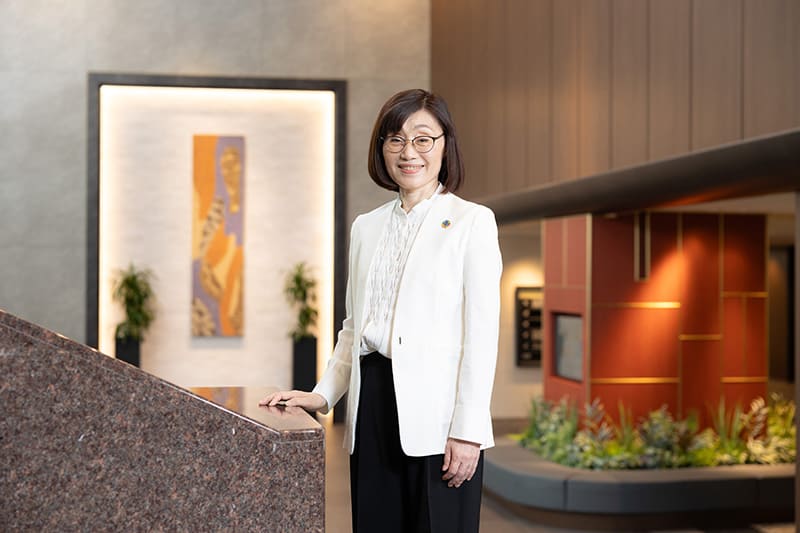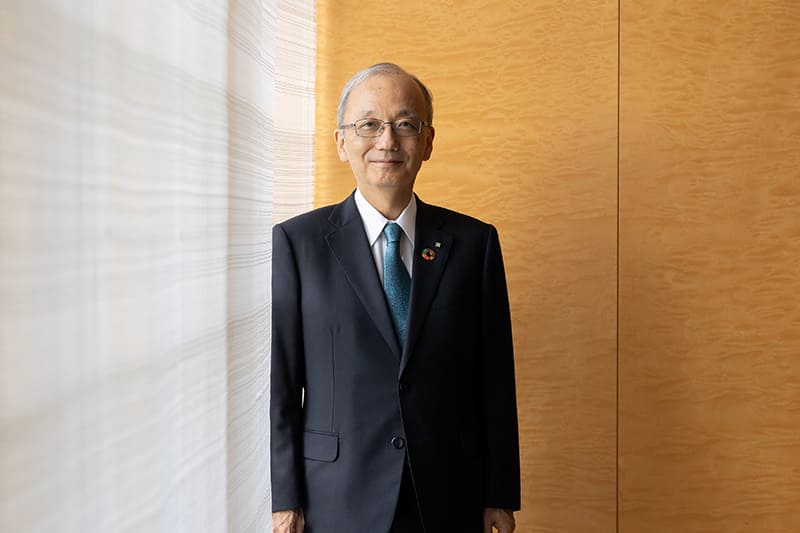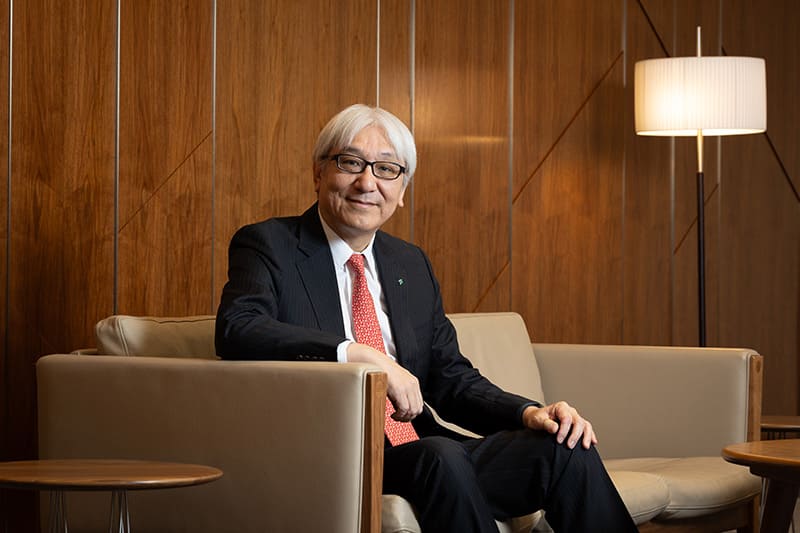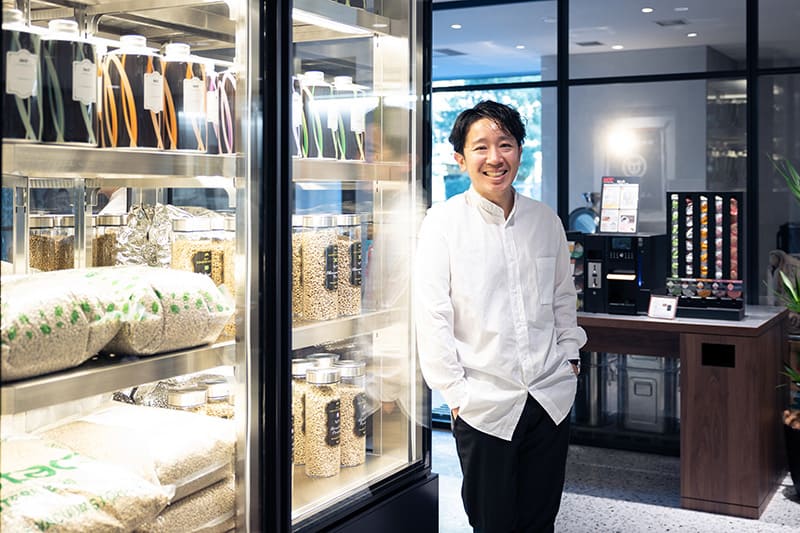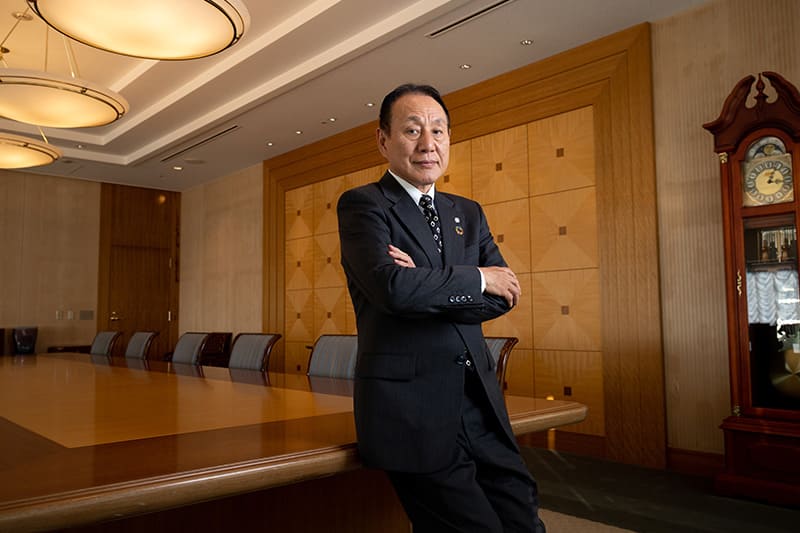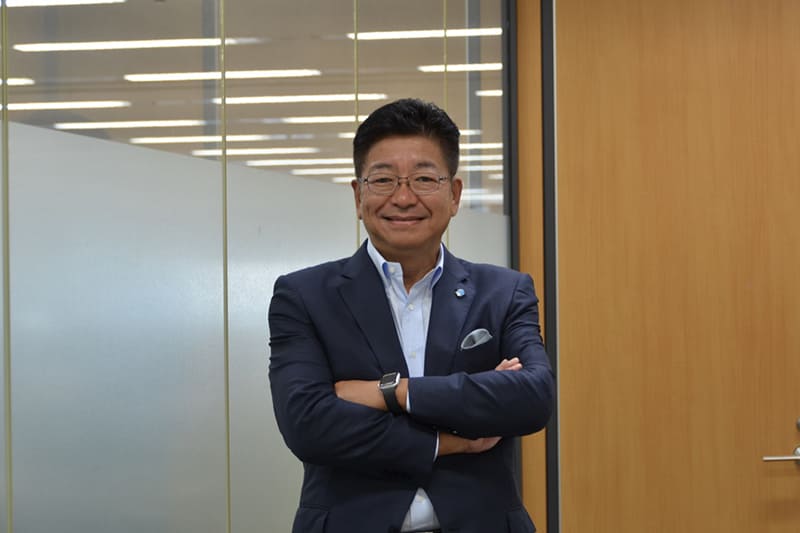October 11, 2024
Seven & I builds trust to realize richer lives worldwide
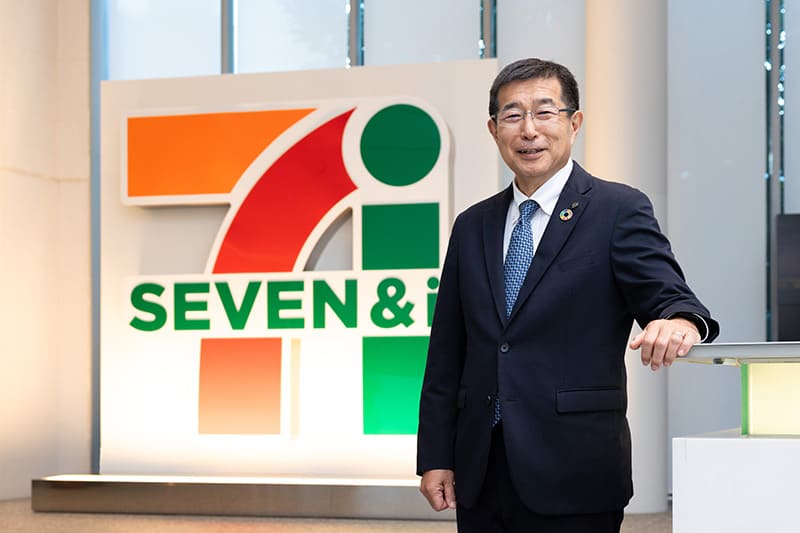
Many century-old companies have a history of transformation to survive. Seven & I Holdings Co. is no exception.
The operator of 7-Eleven convenience stores and Ito-Yokado supermarkets began as a small shop selling Western-style apparel more than a century ago. Eventually, riding on the rapid postwar economic boom in the 1960s and 1970s, it started the supermarket chain and then opened 7-Eleven outlets in Japan. At the same time, it further expanded its business portfolio to a wider range of retail. Today, it moves forward with reforms, concentrating its resources once again on its biggest strength — the convenience store business — as its growth strategy at home and abroad.
“We have had one slogan for a long time. That’s ‘responding to changes,’” said Junro Ito, vice president and chief sustainability officer at Seven & I Holdings. “What’s important is how fast we can catch and respond to customer needs. We’ve been doing this for a long time, and that’s why we are here,” he said in a recent interview, part of a monthly series by Naonori Kimura, a partner for the consulting firm Industrial Growth Platform Inc.
At its roughly 22,800 outlets at home and 85,800 abroad, Seven & I Holdings generated a total of ¥17.79 trillion ($125 billion) in sales for the last business year, which ended in February.
In its long history, the group has gone through a series of big changes.
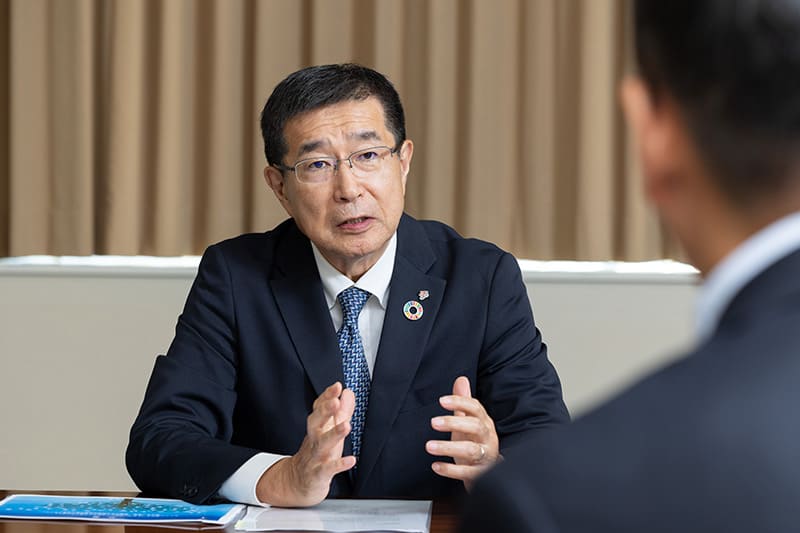
Its story began in 1920, when founder Toshio Yoshikawa opened the clothing store Yokado, which later became Ito-Yokado, in Tokyo’s Asakusa district. Yoshikawa was an uncle of Ito-Yokado’s founder and honorary chairman, Masatoshi Ito, who is Junro’s father.
At first, it was a small clothing retailer. The turning point was the launch of 7-Eleven convenience stores in Japan and the expansion of Ito-Yokado with groceries as its main business.
That started after Masatoshi Ito joined an inspection tour to the United States in the early 1960s. Around that time, representatives of other supermarket chains, including Daiei, Jusco (currently Aeon), Seiyu and Uny, went on similar tours. They all were stunned to see the flourishing retailers in big American cities.
“My father, who originally sold clothing, had a goal of making it a department store at that time. But he witnessed the wealth and the growth of chain stores in the U.S., which made him sure that it was the era of chain stores,” Ito said, and so his father started to expand Ito-Yokado in 1961.
Later inspection tours also led to the launch of 7-Elevens in Japan. One of Ito-Yokado’s executives at the time, Toshifumi Suzuki, who later became the CEO, was attracted to the U.S. convenience stores and their potential during the tours. He won a contract with the then-parent company, Southland Corp., to open the first 7-Eleven in Japan in 1973 and boosted the number across the country. When Southland filed for bankruptcy in 1991,
Seven-Eleven Japan bailed out its U.S. parent company by buying about 70% of its shares together with Ito-Yokado. The Japanese retailing group later made the U.S. store a 100% group firm.
The year 1973 was also when the group started to diversify its business. It opened the first outlet of the Denny’s family restaurant chain in Japan after signing a contract with the U.S. operator for technical support. Seven & I later bought the trademark, under which it started developing its own menu.
This was a harbinger in many ways. In 2001, Seven & I launched IY Bank Co., now Seven Bank, winning approval under Japan’s financial deregulation at that time.
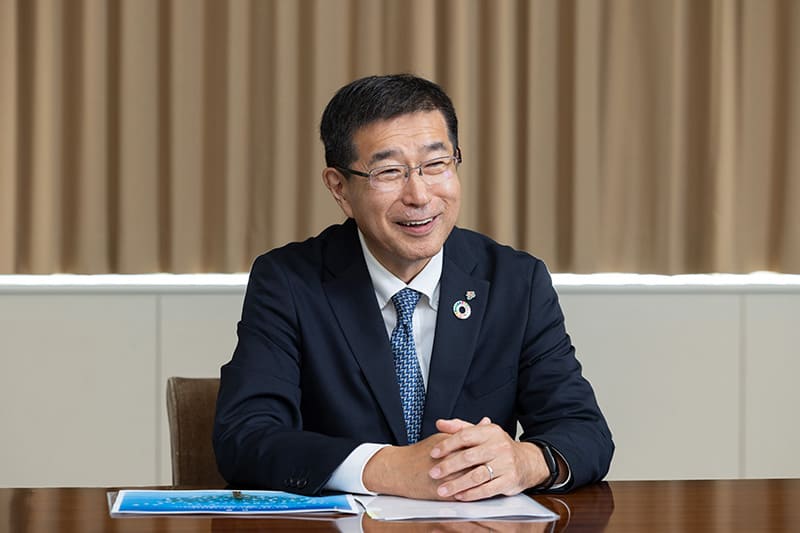
At the turn of the century, the second wave of the group’s business diversification started as it bought out a series of companies. As part of ongoing business reforms, however, it sold off many of them by last year — the Japanese department stores Sogo & Seibu Co., the Japanese branch of the U.S. luxury store Barney’s, the U.S. sporting goods chain Oshman’s and part of the Japanese interior shop Francfranc.
“Unfortunately, the buyouts did not create synergy with our real strength,” Ito said. “We will focus on convenience stores once again and proceed with reforms in order for the group to log profits again.”
In 2021, the giant retailer purchased Speedway gas stations from their U.S. parent, Marathon Petroleum Corp., to further boost its convenience store business abroad. As the result of the buyout, the EBITDA (earnings before interest, taxes, depreciation and amortization), a major indicator of how well a company generates revenues, of the group’s convenience store sector stood at more than 90% of the overall ¥1.05 trillion in EBITDA for the last business year. More than half of the earnings comes from overseas.
For the current business year to February 2025, Seven & I expects the EBITDA to reach ¥1.1 trillion.
In the latest example of reforms, the group is working on what it calls “Synergy 3.0,” in which it shares its private food brands, suppliers and food-processing infrastructure with overseas outlets. Last year, it built the group’s first central food-processing plant in Chiba Prefecture.
The group’s strategy on food synergy started with “Synergy 1.0,” in which it developed its Seven Premium brand of quality processed food for 7-Eleven outlets, followed by “Synergy 2.0” to share original food products and services among the group companies.
While the group is driving synergy among its outlets across borders, it also needs to balance globalization with localization, Ito said. “We share fundamentals like processing infrastructure and marketing for how to find customers’ needs,” he continued. “But we also need to introduce what is needed locally in terms of taste. We need to strike a balance.”
On Oct. 10, Seven & I announced a new restructuring plan to further focus on the global convenience store business. It includes setting up an intermediate holding company for its supermarket food and other businesses, and changing its name, Seven & I Holdings Co., to 7-Eleven Corp.
Naonori Kimura
Industrial Growth Platform Inc. (IGPI) Partner
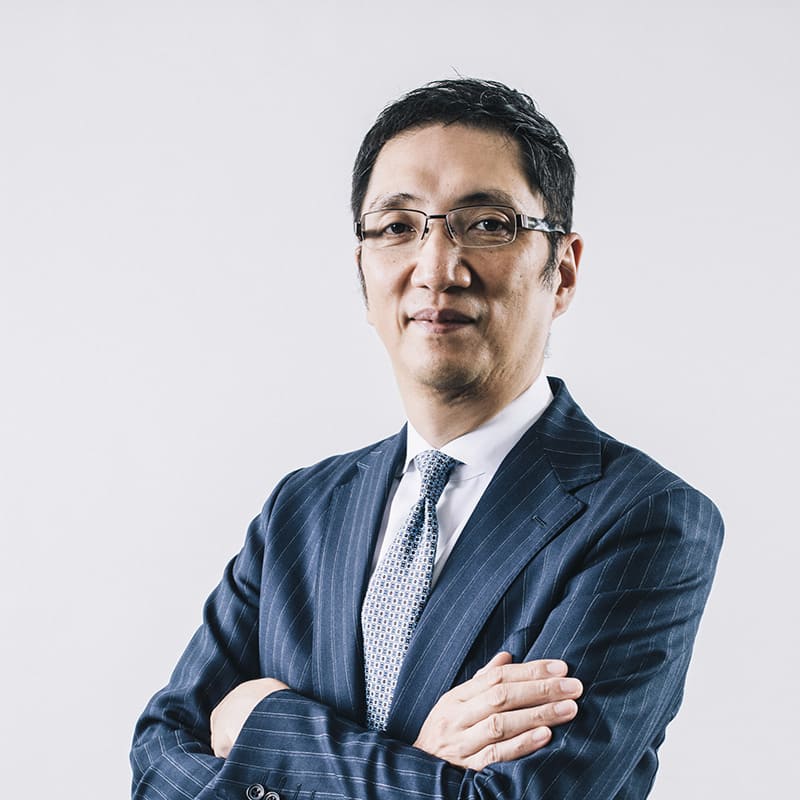
Seven & I Holdings Co. is one of the major companies that have grown along with people’s daily lives as society developed. Without Ito-Yokado and 7-Eleven, we can’t tell the full story of how life has changed since the postwar economic boom.
The business model seen in the product development, manufacturing and outlet operations that make 7-Eleven the No. 1 convenience store chain in Japan and across the world requires close collaboration with stakeholders such as producers and franchisees who do not have a direct stake in the group. It struck me that Vice President Junro Ito strongly stressed the importance of one root value: trust.
Also, strong trust in foreign staff members is essential because the current operation of 7-Eleven outlets would fail without them. When their dreams of becoming 7-Eleven franchisees in their home countries come true, it means that the company is realizing its growth strategies and creating social infrastructure that leads to richer lives for people.
What gives the company the ability to develop convenience store chains across the world that are yet rooted in each country’s culture is its ability to build trust in many ways wherever it goes and thereby form a strong organization that meets both local and global needs.

